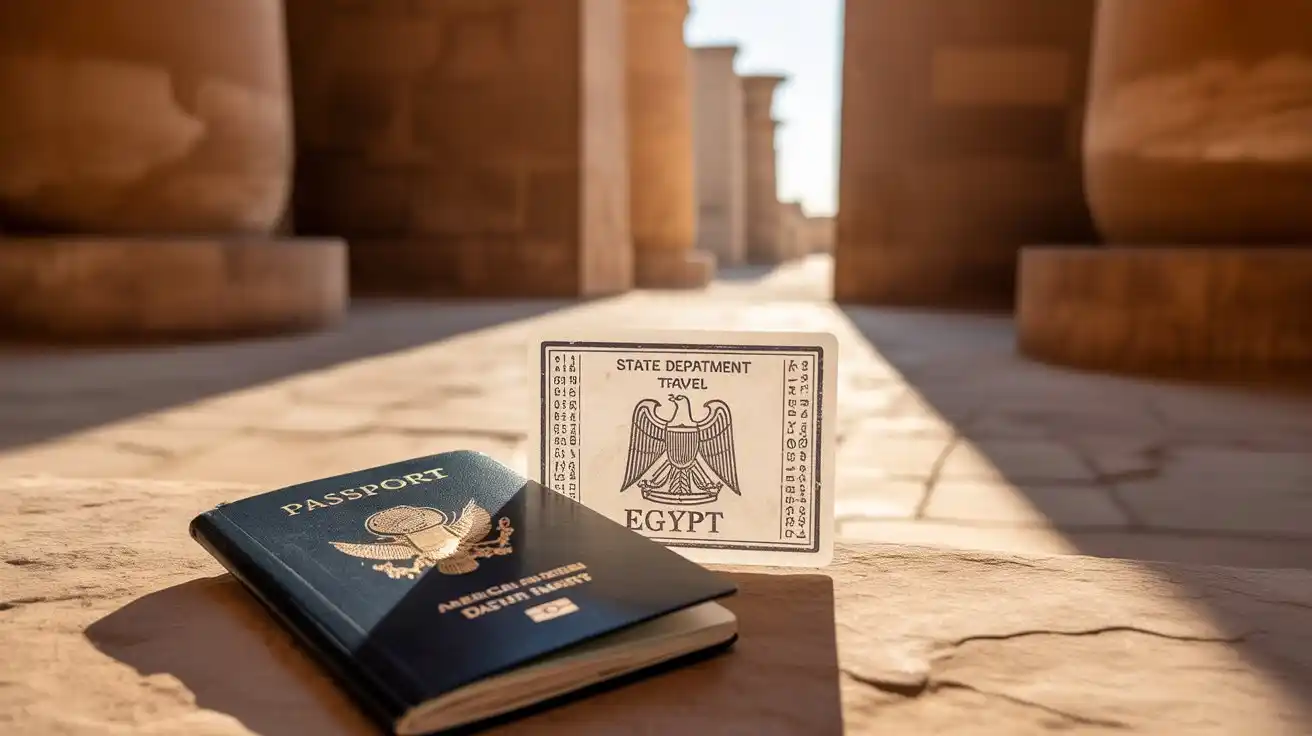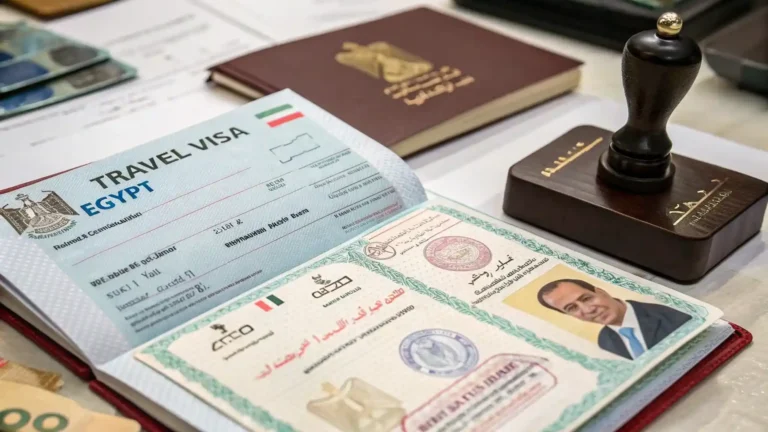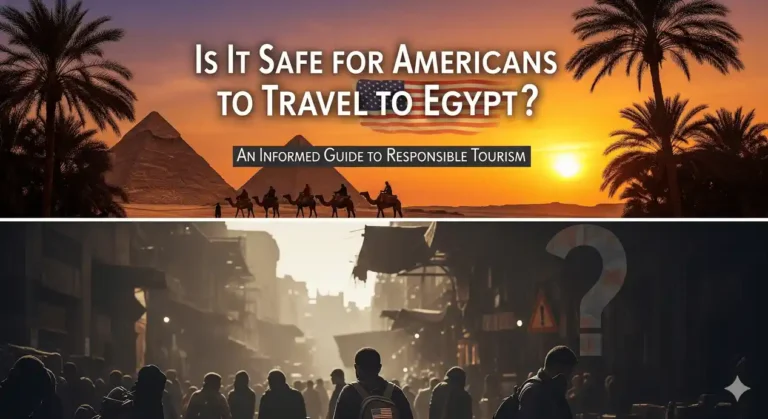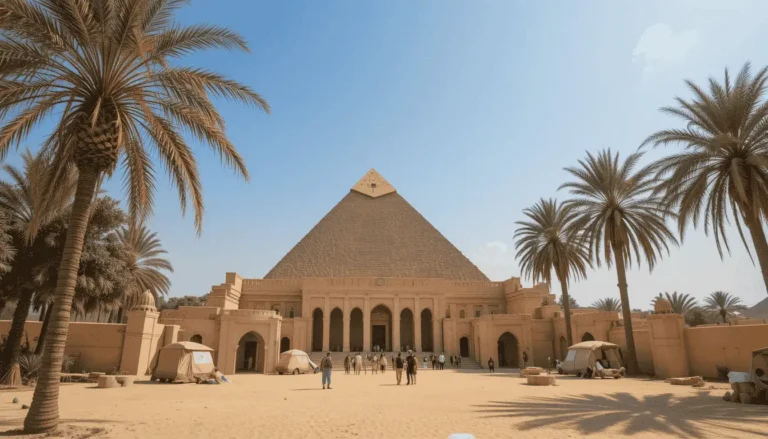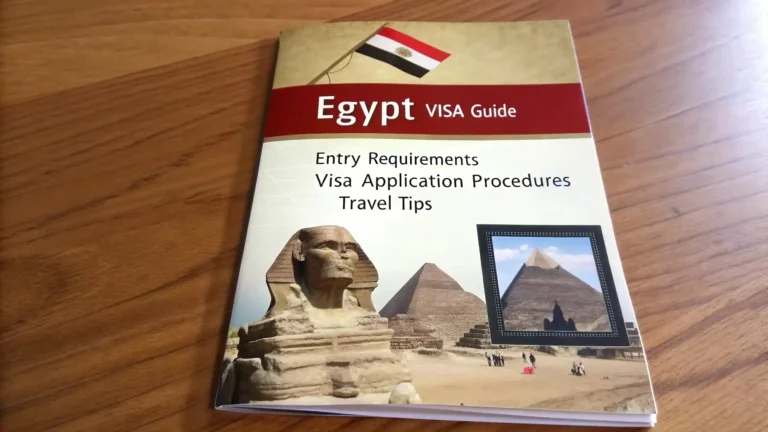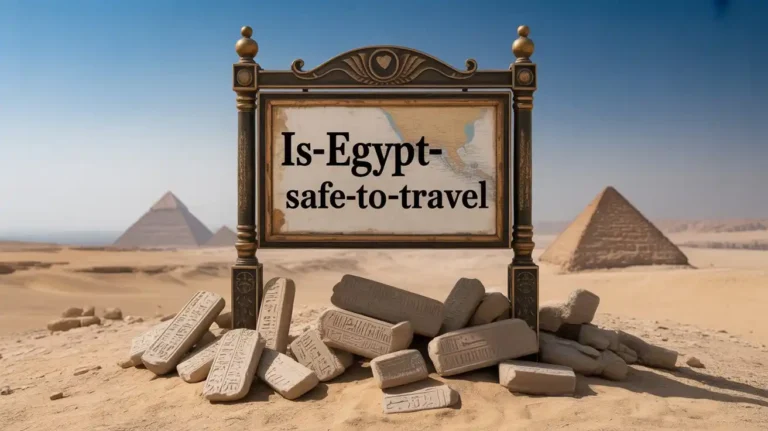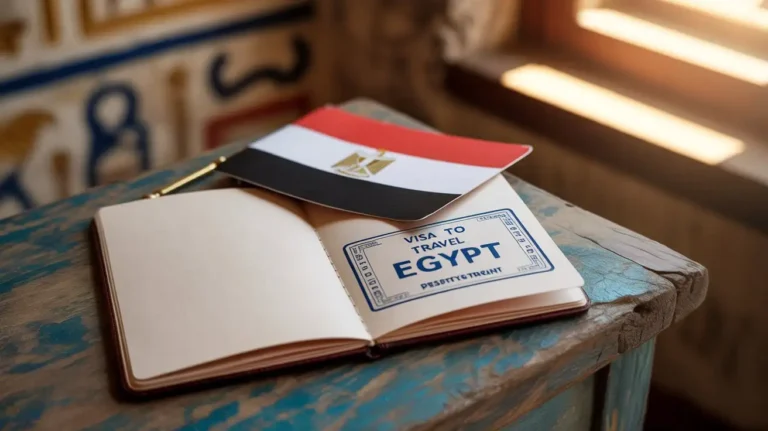State Department Travel Egypt: 7 Expert-Approved Safety Rules
State Department travel Egypt advisories are the first thing that comes up when planning a trip to the land of pyramids, and honestly, I’m not gonna sugarcoat it – when you mention traveling to Egypt these days, the first question people ask is “But is it safe?” I get it. Between reading conflicting reports online and trying to understand what government warnings actually mean, planning your Egyptian adventure can feel like navigating a minefield of information.
Here’s the deal: I’ve been to Egypt three times in the past two years, and yeah, things have changed since the tourism heyday. But after obsessively researching official guidelines and actually experiencing the country firsthand, I can tell you that Egypt is absolutely visitable – you just need to be smart about it.
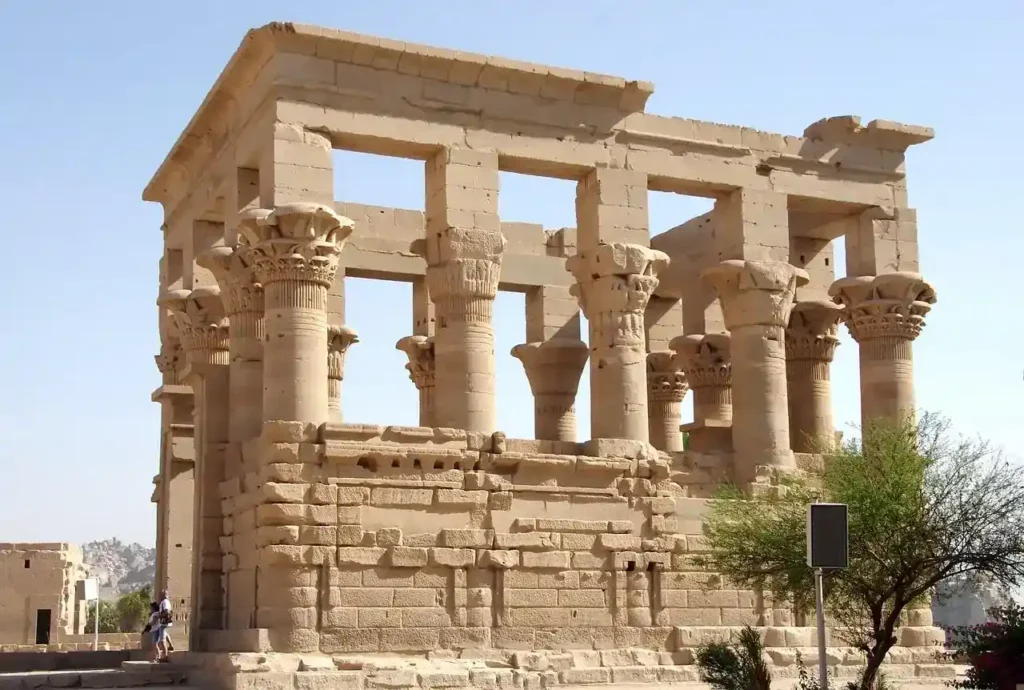
Table of Contents
Current Travel Advisory Status (Updated November 2024)
LLet’s start with what everyone wants to know: what does the State Department travel Egypt advisory actually say right now? As of November 2024, Egypt sits at a Level 3 advisory – “Reconsider Travel.” Now, before you panic and cancel your dreams of seeing the Sphinx, let me break this down for you.
The State Department travel Egypt advisory isn’t a blanket “don’t go” – it’s more nuanced than that. They’re particularly concerned about:
- The Sinai Peninsula (except for Sharm El-Sheikh by air)
- The Western Desert
- Border areas with Libya and Sudan
But here’s what they’re NOT saying to avoid: Cairo, Luxor, Aswan, Alexandria, and the Red Sea resorts. You know, basically all the places you actually want to visit anyway.
Decoding Travel Advisories: What Level 3 Really Means
Many travelers see “Level 3: Reconsider Travel” in State Department travel Egypt advisories and immediately assume the country is off-limits. However, these classifications are more nuanced than a simple go/no-go decision.
Level 3 means the U.S. government wants you to seriously consider whether the trip is necessary, but it doesn’t prohibit travel. The advisory takes into account regional conflicts, terrorism threats, and civil unrest – but much of this applies to specific areas rather than the entire country.
Understanding Egypt’s Security: What Guidelines Don’t Tell You
Real talk – Egypt’s security situation has actually improved significantly since 2016. Tourist police are everywhere (and I mean EVERYWHERE), especially at major sites. It’s almost comical how many security checkpoints you’ll go through just to see some ancient rocks, but hey, I’d rather be over-protected than under.
The numbers back this up too. Tourism arrivals jumped 46% in the first half of 2023 compared to the previous year, with over 7 million visitors. Would that many people be flocking there if it was genuinely dangerous? State Department travel Egypt warnings consider worst-case scenarios, but the day-to-day reality for tourists is quite different.
What’s Actually Happening on the Ground
From my experience, the biggest “danger” you’ll face in tourist areas is aggressive touts trying to sell you papyrus or camel rides. Seriously, I felt more hassled than threatened. The Egyptian government knows tourism is their bread and butter – they’re not about to let anything happen to visitors in major tourist zones, despite what State Department travel Egypt warnings might suggest.
The 7 Essential Safety Tips for Navigating Travel Warnings
1. Register with STEP (Seriously, Do This)
The Smart Traveler Enrollment Program isn’t just bureaucratic nonsense – it’s your lifeline if something goes sideways. Before traveling, always check the latest official updates through their website and STEP program registration. Takes five minutes, costs nothing, and means the U.S. Embassy knows you’re in country.
2. Stick to the Tourist Trail (It’s There for a Reason)
You know those areas the advisory says are fine? Stay in them. This isn’t the time to discover “authentic” Egypt by wandering into random neighborhoods. The tourist trail exists because it’s:
- Well-protected by security forces
- Has infrastructure designed for foreigners
- Where locals expect (and welcome) tourists
Cairo, Luxor, Aswan, Hurghada, Sharm El-Sheikh – these places are your friends and align with safe zone recommendations.
3. Book Through Reputable Tour Companies
I know, I know – you’re an independent traveler. But hear me out. Using established tour operators isn’t just about convenience; it’s about having locals who understand current guidelines and can navigate changing conditions. My guide in Luxor literally changed our route one day because of a local festival that would’ve meant crazy traffic.
Pro tip: Check if your tour company is registered with the Egyptian Tourism Authority. Legit operators will have their license number plastered everywhere.
4. Transportation: Choose Wisely
Official advisories specifically warn against using public buses between cities. After seeing how some of these buses drive, I totally get it. Here’s your transportation hierarchy:
- Best: Domestic flights (EgyptAir is actually pretty decent)
- Good: Private car with driver
- Okay: Uber in Cairo and Alexandria
- Avoid: Public buses, microbuses, tuk-tuks at night
5. Respect Cultural Sensitivities (This Is Huge)
Egypt’s a conservative Muslim country, and respecting that isn’t just polite – it’s a safety issue that goes beyond what official warnings mention. Ladies, bring a scarf. Everyone, keep shoulders and knees covered outside beach resorts. Don’t photograph military installations (they’re touchy about that).
One tourist got detained for flying a drone at the pyramids last month. Don’t be that person.
6. Stay Connected and Informed
Get a local SIM card at the airport (Vodafone or Orange, about $10). Download offline maps. Follow the U.S. Embassy Cairo Facebook page – they post real-time updates that are way more useful than periodic advisory updates.
Also, join the “Egypt Travel Safety Update” Facebook group. Real travelers posting real experiences beats fear-mongering news articles every time.
7. Trust Your Gut (But Don’t Be Paranoid)
If something feels off, it probably is. But also remember that different doesn’t mean dangerous. That guy following you in the souk? He probably just wants to sell you spices. Use common sense, stay aware, but don’t let warnings turn into paranoia that ruins your trip.
Safe Areas vs. Restricted Regions: A Realistic Breakdown
Go For It:
- Cairo: Crazy, chaotic, but safe in tourist areas
- Luxor/Aswan: Probably the safest places in Egypt
- Red Sea Resorts: Bubble of Western comfort
- Alexandria: Underrated and chill
Think Twice (Per Official Guidelines):
- Sinai Peninsula: Except Sharm (by air only)
- Western Desert: Unless on an organized tour
- Border regions: Just… why would you even?
What Female Travelers Need to Know About Safety Advisories
Ladies, I’m gonna be straight with you – Egypt can be challenging. State Department travel Egypt advisories don’t fully capture the cultural challenges women face. You’ll get stared at, probably get some comments, and personal space is apparently not a thing. But it’s manageable. I traveled there solo and survived just fine.
Tips that actually work:
- Wear a fake wedding ring
- Dress conservatively (it really does help)
- Sit in the women’s section on the metro
- Consider joining women-only tour groups for certain activities
Budget Considerations: Is It Worth the Risk?
Here’s something official warnings don’t mention – Egypt right now is CHEAP. Like, suspiciously cheap. A nice hotel in Cairo? $40. Full day tour with guide and lunch? $50. The economic situation means your dollar goes incredibly far.
Is saving money worth any increased risk highlighted in government warnings? That’s your call. But personally, I felt the value-to-experience ratio was off the charts.
State Department Travel Egypt FAQs: Your Most Asked Questions Answered
Q: Can I get travel insurance if there’s a State Department travel Egypt warning?
A: Yes, but read the fine print. Some policies exclude Level 3 countries, others don’t. World Nomads and SafetyWing usually cover Egypt despite current advisories.
Q: Will the warning affect my visa?
A: Nope. Egypt still desperately wants tourists. E-visa process takes 5 minutes online, regardless of advisory levels.
Q: What if things get worse while I’m there?
A: This is why you register with STEP. The embassy will contact you with evacuation plans if needed (though this is extremely unlikely based on current assessments).
Q: Is it safe to travel to Egypt from Israel despite warnings?
A: The land border situation is complicated. Fly instead. Seriously, just fly.
Q: How often do advisories change?
A: The government reviews advisories regularly, but major changes typically happen only when significant security events occur.
The Bottom Line: Should You Go Despite Travel Warnings?
After all this, you’re probably wondering if I’m actually recommending Egypt despite the State Department travel Egypt advisories. Here’s my honest take: if you’re a nervous traveler who’s gonna spend the whole trip worried about every warning, maybe wait. But if you can follow basic safety guidelines and want to see some of the most incredible historical sites on Earth? Go for it.
The State Department travel Egypt advisory is there to inform you, not to make your decisions. By understanding what warnings really mean and following proper safety protocols, you can make an educated choice about your Egyptian adventure. I’ve felt less safe in parts of Europe than I did in Cairo.
Egypt’s been welcoming travelers for literally thousands of years. Don’t let fear – or government advisories – keep you from experiencing something extraordinary. Just be smart about it, follow these guidelines, and get ready for the adventure of a lifetime. Those pyramids aren’t gonna Instagram themselves, are they?
Ready to start planning? Check out my complete Egypt itinerary guide or dive into my Cairo survival tips for first-timers. And hey, if you found this helpful, share it with that friend who’s been talking about Egypt forever but keeps chickening out!
Disclaimer: Travel conditions can change rapidly. Always check the most current official advisories and consult with travel professionals before making final decisions. This article reflects conditions and personal experiences as of November 2024.

